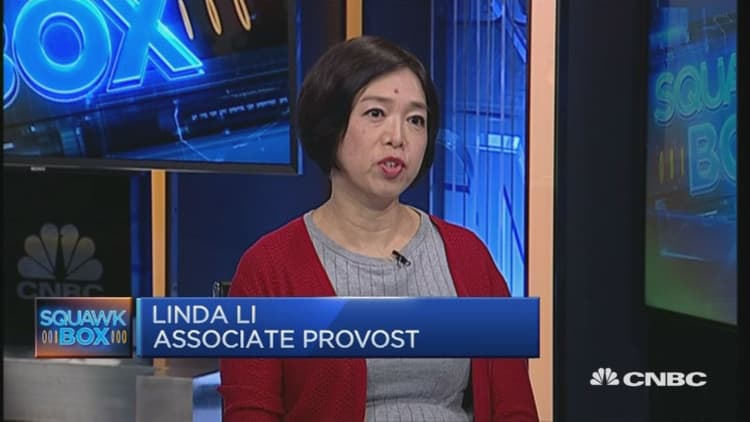Hong Kong political activist Joshua Wong was deported from Thailand on Wednesday after being detained in Bangkok for several hours when Thai officials refused to grant him entry.
The 19-year-old, who made international headlines in 2014 for his leadership during Hong Kong's pro-democracy protests, arrived at Bangkok's Suvarnabhumi International Airport just before midnight on Tuesday but was held in airport custody until Wednesday afternoon, Wong's political party Demosisto revealed in a statement.
Thai student-activist Netiwit Chotipatpaisal, who was expected to meet Wong, notified Demosisto of the detention around 4am on Wednesday.
Thai authorities had previously received a letter from the Chinese government regarding Wong's visit, according to Chotipatpaisal, whose request to see Wong was declined.
Wong later boarded a Hong Kong Airlines flight and arrived back in the city around 3:45 pm local time, Demosisto said. The center-left party has condemned the Thai government for unreasonably limiting Wong's freedom and right to entry.
Wong and Nathan Law, a member of the Hong Kong Legislative Council and fellow independence campaigner, later discussed the case in greater length at a press conference.
"If Thai authorities held Mr. Wong at Beijing's request, then this episode strongly suggests that China remains deeply suspicious of political activism in Hong Kong," Chong Ja Ian, assistant professor at the National University of Singapore, told CNBC.
Wong and the Demosisto party that he co-founded with Law are fierce advocates of Hong Kong's independence from mainland China. In recent years, Wong and other pro-democracy activists have ramped up their protests against increasing Chinese interference in the island's politics.
Hong Kong is considered a special administrative region of China and operates on a principle known as 'One Country, Two Systems' that grants the city high levels of autonomy from the mainland. Still, Beijing maintains the right to select candidates for the post of Hong Kong chief executives, as well as for the legislative council. Under Hong Kong's constitution, universal suffrage is an "ultimate aim" but it remains out of reach after Beijing ruled out open nominations.
Last month, Hong Kong held its first major election since the 2014 Umbrella Movement, with record turnout. Pro-democracy politicians secured 54.8 percent of the vote, while the pro-Beijing camp took 40.3 percent. But ahead of the polls, the Hong Kong government had banned six pro-independence candidates from running.
The strong pro-democracy result reportedly spooked Beijing, with multiple Chinese officials insisting afterward that Hong Kong could never be independent of China.

Last year, five people connected to a Hong Kong publisher that specialized in books critical of Chinese Community Party elites were reported missing, triggering widespread speculation that mainland officials had spirited them across the border as a silencing mechanism.
That episode, alongside Wednesday's developments, indicated that the 'One Country, Two Systems' idea was fast eroding, remarked Curtis S. Chin, Asia fellow at the Milken Institute.
Thailand's alleged co-operation with China could also reflect that the crackdown on free speech in the world's number two economy was spreading to other countries.
"China's restrictions has spread not just to Hong Kong but also seemingly now to countries with which it has significant economic and investment ties," Chin noted. "We also saw the power of China's influence when Cambodia—a recipient of significant Chinese assistance and investment—blocked efforts by other Southeast Asian nations to have ASEAN speak up on the issue of China's assertiveness in the South China Sea."
Thailand certainly has its own worries about democracy. The Southeast Asian country is currently under military rule and pro-establishment lawmakers intend to ensure that Prime Minister Prayut Chan-o-cha, a former army chief, keeps his post during general elections next year, according to reports this week.
Permission for Wong to enter Thailand involved various factors, Reuters said, citing a statement from the Thai Foreign Ministry. Meanwhile, China's Foreign Ministry said it respected Thailand's exercise of immigration control according to the law, Reuters added.
"This [Wong's detention] seems to be a broader pattern of Beijing going after who they deem threatening to their hold on power," Chong echoed.

